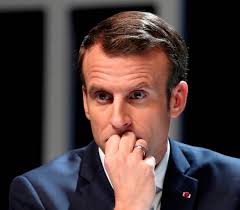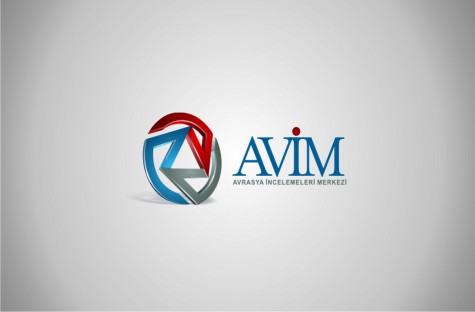In the daily bulletin of Center for Eurasian Studies dated 2 October 2012, it was expressed in a news item that an agreement was signed between Italy, Albania and Greece on 27 September 2012 in New York by their representatives who were present there for the UN GA meeting, according full political support to the natural gas pipeline which would extend from Greece to Italy. This private sector project, well known as the Trans-Adriatic pipeline (TAP), is of interest not only to these three countries, but also to Switzerland which has a need for TAP sources to compensate at the transition period for the nuclear energy gap (currently 45% of the total energy generation) since it has decided not to construct new nuclear power plants. The importance the EU attaches to the project has been indicated by EU Energy Commissioner G. Oettinger’s statement that he welcomes the agreement. As is known, the source of the gas to be transferred through the pipeline is Azerbaijan (Iran could also be added to this when the political conditions permit). Azeri gas reaches Turkey through the Baku-Tblisi-Erzurum pipeline to be transferred to Greece through Turkey’s existing national pipeline. It is possible that this cooperation, to start with the TAP project, will also trigger other possibilities and sources due to Turkey’s vocation as an energy crossroad. For instance, President of the Turkish Republic of Northern Cyprus D. Eroğlu’s suggestion made on 29 September to the UN General Secretary and through him, to the Greek side, for the natural gas from and around the island of Cyprus to be transferred across Turkey through a pipeline, could be enriched with a water pipeline which could be constructed perhaps in a parallel manner which undoubtedly would decrease the costs. At a period in which Turkey targets the year of 2071, a matching approach and project could also be envisaged for the Qatari natural gas resources to be channeled through Turkey, enriched with projects encompassing other countries on its route.
© 2009-2025 Center for Eurasian Studies (AVİM) All Rights Reserved
No comments yet.
-
THE MINSK GROUP’S REGIONAL VISIT IS IN PROGRESS
Alev KILIÇ 26.11.2012 -
THE WAY OUT TO TURKISH-ARMENIAN RECONCILIATION COULD BE MUTUAL FORGIVENESS
Alev KILIÇ 11.11.2012 -
THE SOFT BELLY OF EUROPE: THE BALKANS
Alev KILIÇ 06.11.2012 -
THE ARMENIAN PRESIDENTIAL ELECTIONS INDICATE THAT THE TENSION IN THE REGION WILL CONTINUE TO BUILD UP
Alev KILIÇ 18.12.2012 -
TURKEY AND THE NEW CONFIGURATIONS IN CENTRAL ASIA
Alev KILIÇ 20.09.2013
-
ARMENIA 2013 (2)
Ömer Engin LÜTEM 07.01.2012 -
 EMMANUEL MACRON RECEIVED A SURPRISE NEW YEAR “GIFT” IN EXCHANGE FOR HIS SUPPORT TO ARMENIAN CLAIMS
EMMANUEL MACRON RECEIVED A SURPRISE NEW YEAR “GIFT” IN EXCHANGE FOR HIS SUPPORT TO ARMENIAN CLAIMS
AVİM 21.01.2019 -
THE BALKANS – EU – TURKEY
Alev KILIÇ 03.10.2012 -
 INTERNATIONAL HRANT DINK AWARDS AND TANER AKÇAM
INTERNATIONAL HRANT DINK AWARDS AND TANER AKÇAM
Mehmet Oğuzhan TULUN 30.09.2015 -
THE COURT RULING IN ARGENTINA
Ömer Engin LÜTEM 04.04.2011
-
25.01.2016
THE ARMENIAN QUESTION - BASIC KNOWLEDGE AND DOCUMENTATION -
12.06.2024
THE TRUTH WILL OUT -
27.03.2023
RADİKAL ERMENİ UNSURLARCA GERÇEKLEŞTİRİLEN MEZALİMLER VE VANDALİZM -
17.03.2023
PATRIOTISM PERVERTED -
23.02.2023
MEN ARE LIKE THAT -
03.02.2023
BAKÜ-TİFLİS-CEYHAN BORU HATTININ YAŞANAN TARİHİ -
16.12.2022
INTERNATIONAL SCHOLARS ON THE EVENTS OF 1915 -
07.12.2022
FAKE PHOTOS AND THE ARMENIAN PROPAGANDA -
07.12.2022
ERMENİ PROPAGANDASI VE SAHTE RESİMLER -
01.01.2022
A Letter From Japan - Strategically Mum: The Silence of the Armenians -
01.01.2022
Japonya'dan Bir Mektup - Stratejik Suskunluk: Ermenilerin Sessizliği -
03.06.2020
Anastas Mikoyan: Confessions of an Armenian Bolshevik -
08.04.2020
Sovyet Sonrası Ukrayna’da Devlet, Toplum ve Siyaset - Değişen Dinamikler, Dönüşen Kimlikler -
12.06.2018
Ermeni Sorunuyla İlgili İngiliz Belgeleri (1912-1923) - British Documents on Armenian Question (1912-1923) -
02.12.2016
Turkish-Russian Academics: A Historical Study on the Caucasus -
01.07.2016
Gürcistan'daki Müslüman Topluluklar: Azınlık Hakları, Kimlik, Siyaset -
10.03.2016
Armenian Diaspora: Diaspora, State and the Imagination of the Republic of Armenia -
24.01.2016
ERMENİ SORUNU - TEMEL BİLGİ VE BELGELER (2. BASKI)
-
AVİM Conference Hall 24.01.2023
CONFERENCE TITLED “HUNGARY’S PERSPECTIVES ON THE TURKIC WORLD"









